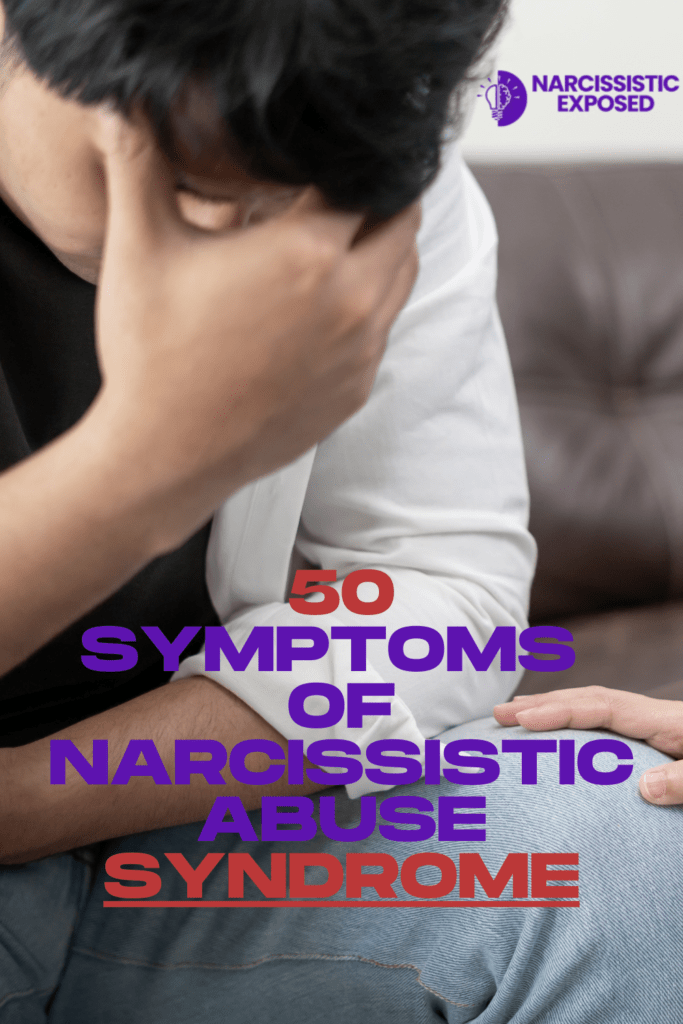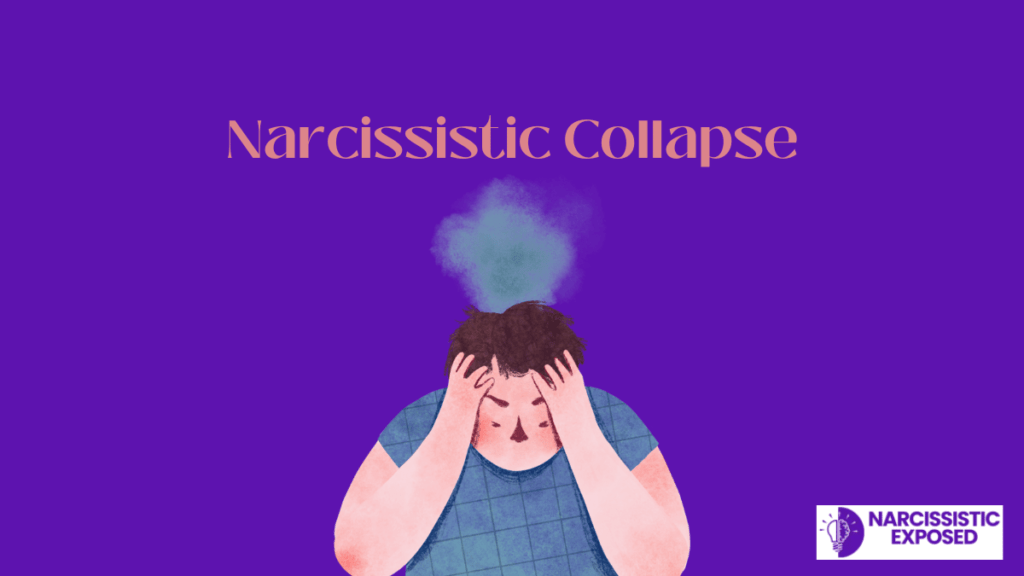
Recognizing the 50 symptoms of Narcissistic Abuse Syndrome is crucial for several reasons. Firstly, it helps victims understand and contextualize their experiences, which can often be confusing and isolating. Many sufferers of narcissistic abuse struggle with self-doubt and may even blame themselves for the abuse due to the manipulative nature of the narcissist. Understanding that these symptoms are a direct result of external abuse can validate a victim’s experiences and feelings, which is a critical step toward healing.
Identifying these symptoms can prompt individuals to seek professional help and support. Narcissistic abuse can lead to severe mental health issues, including depression, anxiety, and post-traumatic stress disorder (PTSD). Early recognition and intervention can prevent more severe outcomes and assist individuals in reclaiming their autonomy and rebuilding their lives.
As we delve deeper into the specific symptoms of Narcissistic Abuse Syndrome in the following sections, it is essential for sufferers and those around them to approach the information with openness and a readiness to seek and offer support.
Table of contents
Emotional Symptoms
Narcissistic Abuse Syndrome manifests a range of emotional symptoms that can profoundly affect the quality of life and overall emotional health of victims. Understanding these symptoms is crucial for recognizing the impacts of narcissistic abuse and starting the path to recovery.
1. Chronic Self-Doubt
Victims often experience persistent self-doubt, constantly questioning their perceptions, decisions, and worth. This is a direct result of the gaslighting and manipulation tactics used by narcissists to undermine their victims’ confidence and reality.
2. Loss of Self-Esteem
Continuous criticism, belittlement, and comparisons erode self-esteem, leaving individuals feeling unworthy and inadequate. This can impact many areas of life, from personal relationships to professional endeavors.
3. Feelings of Isolation
Narcissistic abusers often isolate their victims from friends and family, both physically and emotionally, making the victim dependent on the abuser and feel alone in their struggles.
4. Persistent Sadness or Depression
The emotional rollercoaster caused by a relationship with a narcissist can lead to long-term sadness or clinical depression, characterized by persistent feelings of emptiness and despair.
5. Emotional Instability
Victims may find their emotions unpredictable and extreme due to the constant stress and tension from the abusive dynamics. They might feel fine in one moment and overwhelmed in the next without much warning.
6. Excessive Guilt
Narcissists often shift the blame to their victims, who may absorb this blame and feel an exaggerated sense of responsibility for the problems in the relationship or even the narcissist’s well-being.
7. Fear of Abandonment
Having experienced conditional love or sudden emotional withdrawals, victims may develop a profound fear that any misstep could lead to abandonment.
8. Shame
The stigma associated with being in an abusive relationship and the internalization of the abuser’s criticisms can lead to deep-seated shame, making it difficult for victims to reach out for help.
9. Hopelessness
Feeling trapped in the cycle of abuse, with no visible way out or improvement, can lead to a sense of hopelessness, a belief that the situation will never change and that they are doomed to suffer indefinitely.
10. Mood Swings
The constant emotional upheaval, stress, and psychological manipulation can cause severe mood swings, from highs when the relationship seems stable to devastating lows when the abuse occurs.
Each symptom can severely impact an individual’s emotional health and requires careful and compassionate handling. Recognizing these signs is the first step towards seeking help and healing from the damage inflicted by narcissistic abuse.
Cognitive Symptoms
Cognitive symptoms resulting from Narcissistic Abuse Syndrome reflect the significant impact that psychological manipulation and emotional abuse can have on mental functioning. These symptoms can compromise decision-making abilities, affect work performance, and disrupt daily activities.
11. Confusion and Disorientation
Victims often feel mentally foggy or disoriented, a direct result of gaslighting tactics that make them question reality and doubt their perceptions and memories.
12. Difficulty Concentrating
Constant stress and emotional turmoil can scatter one’s mental focus, making it hard to concentrate on tasks. This can lead to decreased productivity and increased mistakes.
13. Constant Second-Guessing
After enduring prolonged manipulation, victims may constantly doubt their judgments and decisions, fearing they are always wrong or will lead to adverse outcomes.
14. Memory Problems
Chronic stress and trauma can impair memory function, making it difficult to recall details accurately, which further fuels the gaslighting effect.
15. Indecisiveness
With confidence eroded and judgment constantly questioned, making decisions can become agonizing, as victims may fear the consequences of choosing incorrectly.
16. Obsessive Thinking
Victims may obsess over interactions or incidents, trying to decipher what really happened or what they could have done differently, often as a way to regain control or prepare for future interactions.
17. Paranoid Thoughts
Ongoing distrust and feeling manipulated or lied to can lead to paranoid thoughts about others’ motives and questions about whether people are genuinely kind or have hidden agendas.
18. Inability to Focus
Similar to difficulty concentrating, the inability to focus can stem from being overwhelmed with anxiety, fear, and ongoing emotional stress, making it hard to engage fully with the present moment.
19. Catastrophic Thinking
Victims may envision the worst-case scenarios in most situations, a habit formed from expecting adverse outcomes as a pattern in their relationship with the narcissist.
20. Perfectionism
Victims might develop perfectionistic tendencies to avoid criticism or conflict, believing that making things perfect is a way to maintain peace or earn approval.
These cognitive symptoms can be debilitating, but recognizing them is essential for seeking appropriate treatment, such as cognitive-behavioral therapy, which can help reframe thought patterns and reduce the impact of these symptoms. Addressing cognitive symptoms effectively requires a supportive environment and professional guidance to help restore clarity of thought and confidence in one’s mental capacities.
Behavioral Symptoms
Behavioral symptoms of Narcissistic Abuse Syndrome are outward manifestations of the internal turmoil and distress victims experience. These symptoms can disrupt personal relationships, work performance, and overall life satisfaction.
21. Avoidance of Social Activities
Victims may withdraw from social engagements and community activities, often due to a loss of interest, feelings of unworthiness, or to avoid situations that may trigger anxiety or memories of abuse.
22. Withdrawal from Relationships
The mistrust and fear cultivated in abusive dynamics can lead individuals to pull away from both intimate and platonic relationships, isolating themselves to avoid further emotional harm.
23. Substance Abuse
In an attempt to cope with emotional pain, stress, and anxiety, some individuals may turn to alcohol, drugs, or prescription medication misuse as a form of self-medication.
24. Self-Harm Behaviors
Self-harm, such as cutting, burning, or other forms of physical injury, can be a distressing symptom of deep emotional distress and a misguided attempt to cope with overwhelming feelings or to regain control over one’s body.
25. Over-compliance or People-Pleasing
Constant attempts to avoid conflict, criticism, or disappointment can lead victims to become overly compliant or eager to please, often at the expense of their own needs and well-being.
26. Avoidance of Eye Contact
This subtle behavioral change can signify diminished self-esteem, fear of confrontation, or an unconscious attempt to shield oneself from perceived threats or judgment.
27. Self-Sabotage
Victims may unconsciously undermine their success or happiness, driven by an ingrained belief (instilled by the abuser) that they don’t deserve better or as a result of fears that success will lead to greater scrutiny and potential abuse.
28. Compulsive Behaviors
Compulsions, such as excessive cleaning, checking, or hoarding, may develop to exert control over one’s environment or soothe anxiety and stress.
29. Procrastination
Delaying or avoiding tasks can be a defense mechanism against the fear of failure or criticism. Procrastination in this context is often linked to feelings of inadequacy and fear instilled by the abuser’s unrealistic expectations or punitive responses to mistakes.
30. Aggression or Irritability
The build-up of stress, frustration, and suppressed anger can sometimes manifest as increased irritability or unexpected aggression, which are often misdirected at safe targets, including close friends or family members.
Recognizing and addressing these behavioral symptoms is essential for recovery. Interventions may include therapy to deal with trauma, developing healthier coping mechanisms, and gradually rebuilding social connections and support networks. Effective treatment plans should consider individual circumstances and provide a compassionate framework for healing and regaining control over one’s behaviors and life.
Physical Symptoms
Physical symptoms of Narcissistic Abuse Syndrome are often the body’s response to prolonged stress, anxiety, and emotional turmoil. These symptoms can significantly affect daily functioning and overall quality of life.
31. Fatigue and Lethargy
Constant emotional strain can lead to chronic fatigue and lethargy, making it difficult for victims to engage in normal daily activities or muster the energy to face challenges.
32. Insomnia or Hypersomnia
Disturbed sleep patterns are expected, with some individuals struggling to fall or stay asleep (insomnia). In contrast, others may sleep excessively (hypersomnia), both of which are attempts by the body to cope with stress.
33. Unexplained Aches and Pains
Stress and emotional distress can manifest as physical pain, including joint pain, back pain, or other bodily aches that do not have a clear medical cause.
34. Changes in Appetite
Victims may experience significant changes in appetite, either losing interest in food or using eating as a coping mechanism, leading to under-eating or overeating.
35. Increased Illness or Infections
Chronic stress can compromise the immune system, making the body more susceptible to illnesses and infections.
36. Nausea or Gastrointestinal Issues
Anxiety and stress can disrupt the gastrointestinal system, resulting in symptoms like nausea, diarrhea, constipation, or other digestive issues.
37. Tension Headaches
Frequent headaches, especially tension headaches, are common and may be related to stress, anxiety, or muscular tension in the neck and shoulders.
38. Dizziness
Episodes of dizziness or feeling lightheaded can occasionally occur, often triggered by stress or panic attacks.
39. Panic Attacks
Severe anxiety can culminate in panic attacks, which are intense periods of fear or discomfort accompanied by physical symptoms such as palpitations, sweating, shaking, and shortness of breath.
40. Muscular Tension
Chronic stress often leads to muscular tension, particularly in the neck, shoulders, and back, which can be both painful and debilitating.
Addressing these physical symptoms requires a holistic approach, including medical evaluation to rule out other causes, stress management techniques, proper nutrition, regular physical activity, and adequate rest. Therapy and support groups can also provide emotional support and coping strategies to help alleviate these symptoms. Recognizing the link between physical health and emotional abuse is crucial for effective treatment and recovery.
Interpersonal Relationship Symptoms
The impact of narcissistic abuse extends into the interpersonal dynamics of victims, affecting their relationships with others in profound and often complicated ways. Here are ten common symptoms that can arise in the interpersonal relationships of those who have experienced narcissistic abuse:
41. Difficulty Trusting Others
Victims may struggle to trust new acquaintances or even long-standing relationships because of the betrayal and manipulation they have experienced. This can make forming new relationships challenging and strain maintaining existing ones.
42. Problems with Intimacy
The fear of vulnerability, which comes from being exploited or hurt in past intimate relationships, can lead to difficulties in forming close emotional or physical bonds with others.
43. Fears of Abandonment
Having been conditioned to believe they are not enough or that love is conditional, victims often fear that others will leave them if they do not meet specific standards or if they show their true selves.
44. Repeating Toxic Patterns
Unintentionally, victims may find themselves repeating patterns learned in abusive relationships either by choosing partners who are similarly abusive or by mimicking the behaviors of their abuser.
45. Over-sensitivity to Criticism
Due to the harsh and often unwarranted criticism faced during narcissistic abuse, victims may react strongly to criticism or perceived slights in other relationships, regardless of the intent or benign nature of the feedback.
46. Codependency
Victims may develop codependent relationships as a result of their abuse, where they rely excessively on others for approval, identity, and worth, often at the cost of their own needs and well-being.
47. Isolation from Friends and Family
Narcissistic abusers often attempt to isolate their victims from their support networks. Victims may continue this pattern by withdrawing from social contacts, either out of shame or guilt or to avoid confrontation.
48. Jealousy
Insecurity fostered by narcissistic abuse can lead to excessive jealousy in relationships, where victims may fear being replaced or feel inadequate compared to others.
49. Dominance in Relationships
Some victims may respond to past abuse by exerting control or dominance in other relationships, attempting to protect themselves from being hurt or manipulated again.
50. Fear of Rejection
The continuous rejection and conditional acceptance experienced in a relationship with a narcissist often instill a profound fear of rejection, affecting how victims interact with others and hindering genuine connections.
Addressing these interpersonal symptoms often involves therapy focused on building self-esteem, learning healthy relationship skills, and processing past traumas. Support groups can also offer a community of understanding where victims can learn from others’ experiences and receive validation. Healing from these symptoms allows for healthier, more fulfilling relationships based on mutual respect and genuine connection.
Conclusion
Recap of Symptoms and Importance of Awareness
Narcissistic Abuse Syndrome encompasses a wide array of symptoms that can permeate every aspect of a victim’s life—from their emotional well-being and cognitive functions to their physical health and interpersonal relationships. We’ve explored the emotional turmoil marked by chronic self-doubt and emotional instability, cognitive disruptions like confusion and memory problems, and behavioral changes, including withdrawal and self-harm. Physical symptoms such as fatigue and gastrointestinal issues reflect the body’s response to continuous stress, while interpersonal relationship symptoms highlight the difficulties in trust and intimacy that victims often face.
Understanding and recognizing these symptoms is critical for victims and friends, family, and professionals who might support them. Awareness leads to better recognition, which is the first step toward effective intervention and prevents the worsening of symptoms.
Encouragement for Recovery and Personal Growth
Recovery from Narcissistic Abuse Syndrome is undeniably challenging but entirely possible. It begins with recognizing the signs of abuse and understanding that the symptoms you may be experiencing are valid and not a reflection of your worth or capabilities. Recovery involves setting boundaries, seeking professional help, and engaging in supportive communities that understand the unique challenges of this form of abuse.
Encouragement comes from knowing that each step toward recovery is a move toward reclaiming your life and identity. Personal growth post-abuse involves learning from your experiences, developing resilience, and eventually finding a place of emotional stability and happiness. The journey of recovery aims to restore what was lost and foster an environment where you can thrive and discover new strengths.
As you move forward, remember that while the road may be fraught with challenges, each obstacle overcome is a testament to your strength and determination. There is support available, and you are not alone in this journey. With the right resources and a supportive network, you can navigate your way toward healing and fulfilling life beyond the shadows of narcissistic abuse.




